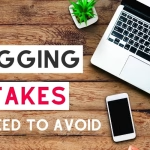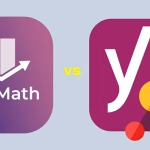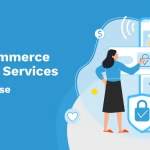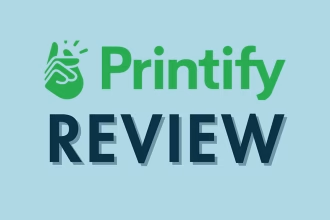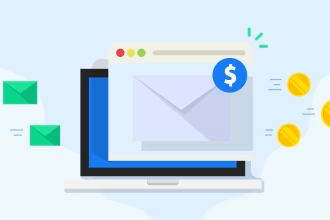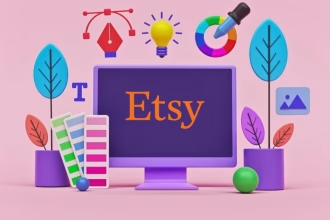Wondering about the best online businesses to start from zero but don’t know where to begin? Well, 2025 might just be the perfect time to dive in! With AI tools getting smarter and online platforms expanding faster than ever, building a profitable business from scratch isn’t some far-off dream—it’s doable.
Whether you’re craving a flexible side hustle or aiming for a business that could hit six (or even seven) figures, there’s a path that fits your goals.
In this guide, we’re breaking down 7 of the best online businesses to start from zero—ideas that aren’t just trendy buzzwords but real, scalable opportunities designed to grow with you. Let’s jump in!
1. Selling Your Own Digital Products
Selling digital products—like online courses, eBooks, templates, printables, stock photos, or memberships—is a powerful way to build a scalable online business with minimal startup costs.

Unlike physical products, there’s no inventory to manage, no shipping logistics, and your profit margins remain high.
But why does this model work so well? It’s simple: People are willing to pay for solutions. Your digital product could teach a new skill, solve a problem, or offer some kind of transformation.
Imagine packaging your knowledge—in fitness, photography, or personal finance—and selling it 24/7 while you sleep.
Let’s break it down:
- A $1,000 course with just 2-3 daily sales equals around $83,000 per month—that’s a million-dollar business by year’s end.
- Alternatively, selling digital templates, printables, or guides at $25 each means you only need 3,400 monthly sales to hit the same goal—very doable with a growing audience.
- A membership community with 830 members paying $100/month also brings you to that magic number.
Pretty exciting, right?
How to Set Up Your Digital Product Business
Choose Your Niche: Focus on what you’re good at or what people consistently ask you for advice about. The more specific, the better. Are you great at graphic design? Sell Canva templates. Love journaling? Create printable planners.
Pick a Platform: Choose a platform based on what you want to sell:
- Courses & Memberships: LearnWorlds, Kajabi
- Digital Downloads: Gumroad, SendOwl, Etsy
- Email Marketing: Beehiiv (free for up to 2,500 subscribers!)
Build Your Audience: Start with social media, a blog, or a YouTube channel to grow your following. Drive them to your email list—your most reliable way to make consistent sales.
Create Recurring Revenue: Memberships or subscription-based content give you a steady income stream, adding predictability to your earnings.
What Holds People Back—and How to Overcome It
Many aspiring creators hesitate because selling digital products sounds intimidating. You might worry about mastering video production for a course, setting up sales pages for templates, or writing persuasive emails. It’s a lot, but you don’t have to do it all alone.
Leverage AI tools to fast-track your progress. AI can generate email sequences, map out lesson plans, and even brainstorm content ideas. With the right tools, the learning curve becomes way smoother.
Pro Tip: Start with a simple digital product—like this $29 AI Content Creation Engine, printable, or design template—before building a full-blown course. This builds confidence, validates your idea, and gets cash flowing early.
What if creating content was easy, fast, and fun? 🚀
Meet the AI Content Creation Engine—your 18-in-1 toolkit packed with AI tools, ready-to-use templates, and simple guides to create everything from blogs and YouTube scripts to email newsletters and social media posts.
No more juggling expensive subscriptions or battling writer’s block. This is the secret weapon smart creators are using to save time, boost productivity, and stay ahead of the game.
👉 Don’t get left behind—grab your AI Content Creation Engine today!
Selling digital products truly is one of the best online businesses to start from zero because you’re in full control, and there’s limitless potential to grow. So, what’s that skill or knowledge you can share with the world?
2. Affiliate Marketing Using AI
Don’t have a product to sell? No problem—affiliate marketing lets you promote others’ products and earn commissions for every sale. It’s a fantastic way to start an online business without worrying about inventory, customer service, or complex logistics.

And here’s the kicker: By leveraging AI tools, you can streamline content creation, target the right audience faster, and boost your earning potential.
How Affiliate Marketing Works
Affiliate marketing is straightforward. You create content—like blog posts, YouTube videos, or social media posts—that recommends a product or service. You include special affiliate links, and when someone clicks and buys, you earn a percentage of the sale.
What makes this model so powerful is that commissions can stack up quickly, especially for high-ticket items or recurring subscriptions. Unlike ads, affiliate sales often bring in higher earnings per visitor—perfect for niches like software, online tools, or premium courses.
Top Affiliate Marketing Strategies
Ready to succeed? Here are four battle-tested strategies:
- Blogging: Write product reviews, comparisons, or listicles optimized for SEO. AI tools like ChatGPT and Claude can generate article ideas, outline drafts, and even suggest catchy titles. Focus on transactional keywords like:
- YouTube: Video content converts like magic. Create honest product reviews, tutorials, or “unboxing” videos. Add affiliate links in the video description, and don’t forget a call-to-action like, “Click the link below to grab a discount!” Niche channels in travel, tech, and DIY thrive here.
- PPC Ads: Want faster results? Run pay-per-click (PPC) ads on Google or Bing. Target high-intent keywords, but always calculate your ROI—make sure your ad spend doesn’t eat up your commissions. Pro tip: Negotiate higher commission rates directly with affiliate managers when you start driving consistent sales.
- Short-Form Content: TikTok, Instagram Reels, and YouTube Shorts are gold mines for affiliate marketing. Create snappy, engaging videos showcasing a product in action. TikTok’s seamless shopping experience often leads to impulse buys—making it a great affiliate tool.
AI Tools to Supercharge Your Affiliate Game
AI isn’t just a buzzword—it’s a game-changer for affiliate marketers. Use AI tools to:
- Find profitable keywords: Writesonic or Ahrefs AI tools help you identify keywords with high purchase intent.
- Generate content ideas: Let ChatGPT or DeepSeek brainstorm blog post titles, video scripts, or TikTok hooks.
- Automate email sequences: Pair AI copywriting tools with platforms like Beehiiv to build an affiliate-focused email funnel.
Pro Tip: Start by joining affiliate programs with recurring commissions—like software subscriptions—so you keep earning month after month. Examples include NordVPN, LearnWorlds, and Beehiiv.
Affiliate marketing is hands-down one of the best online businesses to start from zero. With AI doing the heavy lifting, you can focus on growing your audience, creating compelling content, and watching those commissions roll in.
So, what’s the first product you’re excited to promote?
3. Starting a Faceless YouTube Channel
Not comfortable being on camera? No problem! Faceless YouTube channels are booming, allowing creators to build profitable channels without ever showing their faces.

Thanks to AI tools and accessible stock footage, this is a low-barrier way to grow a YouTube business from scratch.
How It Works
Instead of appearing on-screen, you create content using voiceovers, stock footage, animations, and text overlays. These channels thrive in niches like:
- Motivation: Daily quotes, success stories, and mindset hacks.
- Education: Tutorials on history, science, or personal finance.
- Niche interests: Stoicism, minimalism, or tech explainers.
Essential Tools to Get Started
- Script Writing: Use AI tools like ChatGPT to draft engaging scripts.
- Stock Footage: Find high-quality clips from Motion Array or Storyblocks.
- Voiceovers: Record your voice or use AI text-to-speech software like Descript.
- Editing: CapCut or Adobe Premiere Pro for seamless video edits.
- Audio: Invest in a quality microphone—here are the 10 Best Microphones for Voiceovers.
Monetizing Your Faceless Channel
Once you hit YouTube’s Partner Program requirements (1,000 subscribers and 4,000 watch hours), you can start earning ad revenue. But that’s just the start:
- Affiliate Links: Add product links in video descriptions.
- Sponsorships: Partner with brands once you grow your audience.
- Your Products: Promote digital products, like eBooks or courses.
Pro Tip: Focus on SEO-friendly video titles like “How to Save Money Fast” or “Best Apps for Productivity.” AI tools can help you research keywords for maximum reach.
Faceless YouTube channels offer endless possibilities, making them one of the most creative and accessible online businesses to start from zero.
4. E-commerce and Dropshipping
E-commerce, particularly dropshipping, is another strong option for starting an online business without heavy upfront costs. With dropshipping, you sell products without holding any inventory—suppliers handle storage and shipping directly to your customers.
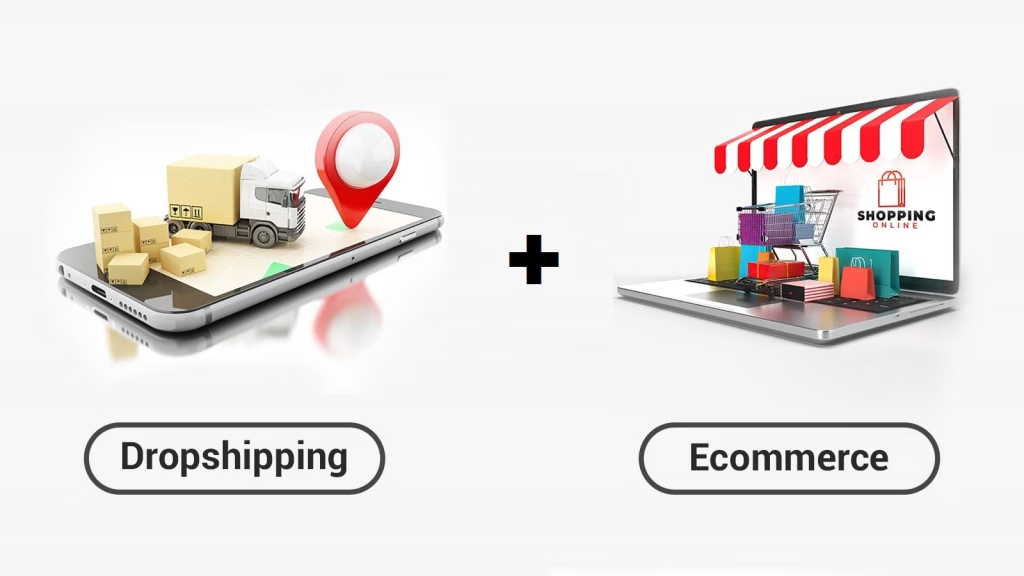
This model means you focus on branding, marketing, and customer experience while the logistics happen behind the scenes. It’s a great way to test product ideas and scale fast. It’s among the best online businesses to start from zero.
How It Works
Starting is simple, thanks to beginner-friendly platforms like Shopify. With Shopify, you can create a sleek online store, customize product pages, and start accepting payments—all without touching a single product.
To source products, integrate with tools like Spocket or AliDrop or AliDropship. Spocket connects you with high-quality US and EU-based suppliers, helping you offer faster shipping times and reduce customer complaints.
Meanwhile, AliDropship links directly to AliExpress, giving you access to thousands of affordable products while AliDrop
Want to test out drop shipping? Start your Shopify store today with a free trial and explore how Spocket, AliDrop, and AliDropship can automate your product sourcing and fulfillment.
Challenges of Dropshipping
Let’s be real—drop shipping has its challenges:
- High competition: You’re often up against major retailers like Amazon.
- Thin profit margins: Since you don’t buy in bulk, your per-sale profit can be smaller.
- Brand differentiation: Standing out means building a strong brand with custom packaging, unique product descriptions, and an engaging social media presence.
The key? Focus on niche markets. A store selling eco-friendly pet supplies or personalized tech gadgets has a better chance of succeeding than a generic “everything” store.
Alternatives for Selling Online
Not into dropshipping? No problem. Try these alternatives:
- Etsy: Great for handmade or vintage items, as well as print-on-demand designs like custom mugs and t-shirts.
- Amazon FBA: If you prefer to scale quickly, Fulfillment by Amazon lets you store products in Amazon’s warehouses, and they handle packing and shipping.
- Print-on-Demand (POD): Combine Shopify with POD platforms like Printify, Gelato, and Printful to sell custom-designed products without holding stock.
Marketing Tips for E-commerce Success
Marketing can make or break your store. Here’s how to drive traffic and sales:
- Google Shopping Ads: Ensure your products show up at the top of Google search results when shoppers search for similar items.
- Retargeting Campaigns: Use Facebook and Instagram ads to target visitors who browsed your site but didn’t buy—often, they just need a nudge.
- Email Marketing: Collect emails from the start and offer exclusive discounts, product drops, and behind-the-scenes updates to your list.
Pro Tip: Pair Shopify with Spocket or AliDrop for seamless product sourcing and automated fulfillment.
With the right tools and a smart niche, e-commerce and dropshipping remain some of the best online businesses to start from zero. Ready to launch? Start your Shopify store and take the first step today!
5. Developing AI-Based Software
If you’re looking for a high-revenue option, software is king. AI tools are booming, and software companies often attract massive valuations.
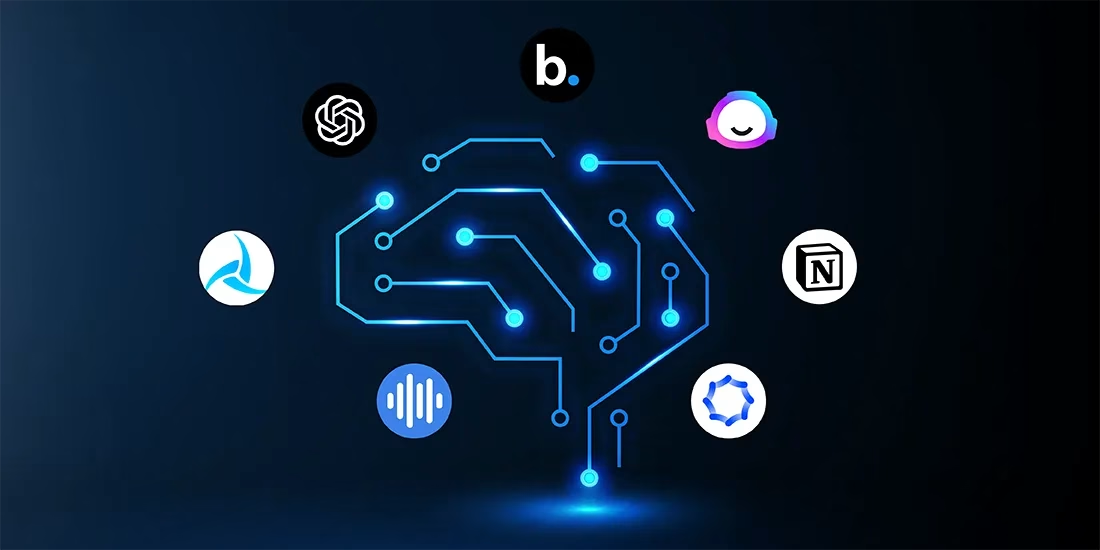
Why Software Works
Software businesses succeed thanks to recurring revenue. Think subscription models—users pay monthly for continuous access. For example, 1,000 customers paying $50/month equals $600,000/year.
A SaaS company (Software as a Service) can sell for six to eight times its yearly revenue.
Getting Started
- Identify a Problem: Start by spotting a niche problem that AI can solve. Look for pain points in industries like marketing, e-commerce, or education.
- Build an MVP: Create a minimum viable product (MVP). You can prototype using AI tools like Bubble or Adalo—no coding required—or team up with a developer.
- Test and Refine: Launch a beta version to gather feedback, then polish your software based on user input.
- Monetize: Offer subscription plans, freemium tiers, or one-time payments to start earning.
Marketing AI Software
Once your product is ready, the key is aggressive marketing:
- Affiliate Programs: Set up affiliate partnerships so creators promote your tool in exchange for commissions.
- Content Marketing: Write SEO-optimized blog posts explaining how your software solves specific problems.
- Product Hunt Launch: Platforms like Product Hunt can give your AI software viral exposure.
Example Case
Entrepreneur Peter Levels built multiple small AI tools, bringing in $300,000/month. He focused on simplicity, scaling with just a few highly-targeted tools rather than large teams.
Pro Tip: Offer a free trial or freemium plan to get users hooked. This lowers the entry barrier and builds trust.
Building AI software combines innovation with recurring revenue, making it one of the most scalable online businesses to start from zero.
6. Podcasting for Content Repurposing
Podcasting is no longer just about audio—it’s a powerful way to scale content across multiple platforms and build a loyal audience.

Whether you’re a solopreneur or a brand, podcasts help you establish authority, foster community, and open multiple income streams.
Why It Works
Podcasts are a content goldmine. With just one 1–2 hour recording, you can repurpose your content into:
- Long-Form Videos: Break down key discussions into 3–5 YouTube videos. Example: A business podcast can split episodes into “How to Grow on LinkedIn” or “Email Marketing Secrets.”
- Short-Form Clips: Extract 4–5 viral snippets for TikTok, Instagram Reels, and YouTube Shorts. Pro tip: Highlight memorable quotes, quick tips, or emotional moments.
- Audio Episodes: Publish full episodes on Spotify, Apple Podcasts, and Google Podcasts to grow your listener base.
- Blog Posts: Use AI transcription tools to convert your podcast into SEO-optimized articles. Example: A fitness podcast can turn a workout episode into “5 Best Exercises for Beginners.”
- Email Newsletters: Summarize the podcast’s main points and send them to your subscribers, keeping them engaged and driving traffic back to your content.
This approach multiplies your reach with minimal extra effort—one podcast session fuels an entire content ecosystem.
Essential Tools to Streamline the Process
- Opus Clip: Automatically creates short, engaging video highlights from long-form content—perfect for social media.
- Descript: Edit both audio and video effortlessly using AI-powered transcription, making post-production a breeze.
- Headliner: Design eye-catching audiograms to promote audio snippets on Instagram, Twitter, and Facebook.
- Riverside.fm: Record high-quality remote interviews for professional-sounding podcasts, ideal for guests joining virtually.
- Castmagic: An AI tool that instantly generates show notes, timestamps, and quotes from your podcast episode.
Monetization Strategies
Podcasting isn’t just about sharing ideas—it’s a solid business model. Here’s how you can make money:
- Sponsorships: Partner with brands in your niche and promote their products. Example: A marketing podcast might land sponsorships from email marketing tools like Beehiiv or Kit (Convertkit).
- Affiliate Marketing: Include affiliate links in show notes or mention products during episodes. Example: “Check out this AI writing tool I use—link in the description!”
- Premium Content: Offer exclusive episodes, bonus content, or Q&A sessions via platforms like Patreon or Supercast.
- Course or Product Sales: Funnel listeners into your sales pipeline by promoting your own online courses, e-books, or coaching programs.
- Live Events and Merch: Build a community by hosting live podcast events or selling branded merchandise like mugs or T-shirts.
Pro Tip: Always include a clear call to action in your podcast—ask listeners to subscribe, leave a review, or visit your website for exclusive content.
7. Starting an AI Agency
Starting an AI agency is one of the fastest ways to generate income while positioning yourself at the forefront of technology.

Businesses are actively seeking AI solutions, and you can be the expert they turn to. It’s a sweet spot among the best online businesses to start from zero.
Common Services to Offer
AI is revolutionizing how businesses operate, and you can offer cutting-edge services like:
- AI Content Generation: Writing blogs, social media posts, and ad copy using AI tools like ChatGPT, DeepSeek, Claude, and Jasper.
- SEO and PPC Advertising: Leveraging AI to optimize ad spending and boost organic reach.
- AI-powered video Editing: Using tools like Pictory or Runway ML to create polished content quickly.
- Social Media Management: Automate content creation, scheduling, and analytics with AI tools.
- Chatbot Development: Setting up AI chatbots for websites to enhance customer support and lead generation.
How to Get Started
- Register Your Business: Establish credibility and legal protection by using business registration services like ZenBusiness or Tailor Brands to set up your LLC or sole proprietorship quickly.
- Define Your Niche: Focus on a target market, like e-commerce brands, coaches, or local businesses.
- Build a Portfolio: Create mock projects or offer free work to early clients to showcase your expertise.
- Outreach & Networking: Pitch your services on LinkedIn, Twitter, or via cold emails.
- Leverage AI Tools: Use platforms like Writesonic for content, Adzooma for ad management, and ManyChat for chatbot automation.
Pricing Your Services
Your revenue depends on how you package your services. Consider a “good-better-best” pricing model:
- Basic Package: $1,000/month — AI content creation for blogs and social posts.
- Advanced Package: $3,000/month — SEO optimization, AI ad management, and content repurposing.
- Premium Package: $8,000+/month — Full-service AI marketing campaigns, including video editing, chatbots, and analytics.
Scaling Your AI Agency
The key to growth is scalability. Start by doing the work yourself, then hire freelancers or contractors as your client base grows. Automate repetitive tasks with AI so you can focus on client acquisition and strategy.
Pro Tip: Don’t skip the business registration step. Having an official business entity boosts your credibility when pitching high-ticket clients.
Parting Shot: Ready to build a future-proof AI agency? Take the first step—register your business with ZenBusiness or Tailor Brands, define your niche, and start scaling with AI-powered services!
Final Thoughts
Success in online business doesn’t happen overnight—it’s a journey of effort, consistency, and smart strategies. The ideas we’ve explored—whether it’s launching a podcast, starting an AI agency, or diving into e-commerce—are all stepping stones to building a profitable, future-proof business.
The key is to start. Combine content creation with digital products, use AI to streamline your work, and focus on solving real problems for your audience. Every big online business you see today started with a single step.
So, what’s your move? Pick a path, take action, and build something extraordinary. Your ideas for the best online business to start from zero journey begins now.
FAQs
1. What are the best online businesses to start with no money?
If you’re starting with little to no investment, consider online businesses like affiliate marketing, dropshipping, and blogging. These require minimal upfront costs and focus on leveraging digital platforms and content to generate income.
2. How do I choose the right online business to start from zero?
Start by identifying your skills, interests, and market demand. Ask yourself what problems you can solve and what industries excite you. Research profitable niches and validate your ideas by checking search trends and competitor activity.
3. Can I start an online business with no experience?
Absolutely! Many successful online entrepreneurs started with zero experience. Focus on beginner-friendly models like freelancing, affiliate marketing, or selling digital products. Use online resources, courses, and AI tools to learn as you go.
4. What tools do I need to start an online business from scratch?
Essential tools include:
- Website builders: WordPress, Squarespace, or Shopify
- Email marketing platforms: Beehiiv, Kit, or Mailchimp
- SEO tools: Ahrefs, RankMath, or Ubersuggest
- AI content tools: ChatGPT, Jasper, or Writesonic
These tools streamline operations, helping you build and grow your online business efficiently.
5. How long does it take to make money from an online business?
Timelines vary based on your business model and effort. Freelancing or affiliate marketing can yield results in a few months, while blogging, SaaS, or course creation may take 6–12 months. Consistency and smart strategies are key to accelerating growth among the online businesses to start from zero
6. Can online businesses be profitable in 2025?
Yes! Online businesses are thriving, especially in AI, e-commerce, digital products, and online education. By staying updated on trends and leveraging automation tools, you can tap into these growing markets and build a profitable business.
7. What are some online business ideas that require no inventory?
Consider:
- Digital products: E-books, templates, and online courses
- Print-on-demand: Selling custom designs without holding stock
- Freelancing: Offering services like writing, design, or social media management
- Affiliate marketing: Promoting products and earning commissions
These options eliminate inventory concerns and simplify logistics.
8. How can I market my online business effectively?
Use cost-effective strategies like:
- Content marketing: Blogging, YouTube, and podcasting
- SEO: Optimizing content to rank on search engines
- Social media: Building a presence on platforms like Instagram, TikTok, or LinkedIn
- Email marketing: Nurturing leads and driving sales through newsletters
9. What are the biggest challenges of starting an online business?
Common hurdles include:
- Time management: Balancing work and personal life
- Competition: Standing out in saturated markets
- Tech overwhelm: Navigating new tools and platforms
- Consistency: Staying motivated without instant results
Plan and use AI tools to automate repetitive tasks and boost productivity.
10. How do I scale an online business from zero to success?
Growth strategies include:
- Automation: Streamline tasks with AI tools
- Outsourcing: Hire freelancers to handle specialized work
- Multiple income streams: Combine ads, affiliate sales, and digital products
- Data-driven decisions: Use analytics to refine your strategies
Scaling requires smart systems and a focus on continuous improvement.
Please don’t forget to share with friends, and feel free to drop a comment on your online business journey or ideas.


